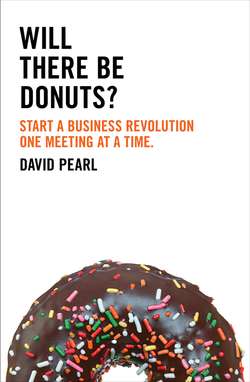Читать книгу Will there be Donuts?: Start a business revolution one meeting at a time - David Pearl - Страница 10
ОглавлениеThe Why of Meetings
If you are in a meeting and wondering what am I doing here? it is time to pay attention to the top left quadrant.
Probably the most important moment in any meeting is one we don’t notice. We walk straight past it in our hurry to get the job done. It comes just after the start. You’ve arrived (or phoned in), settled in your chairs and are just discussing what the meeting is about when …
Stop.
Rewind.
There. Just before you say what the meeting is about. It’s the why moment. It’s the moment you can really energise the meeting, awaken, involve and engage the participants. If you miss it, you are going to have to work that much harder for this meeting to succeed.
Even real engagement pros sometimes miss that moment. When the blockbuster film The Gladiator was first tested on audiences it had a so-so reaction. It was clearly a great action film, but the audiences felt something was missing. Then director Ridley Scott added a scene, right at the start. It goes something like this:
Fade up out of black.
We hear an Asiatic woman’s voice, keening. We are in close up on a man’s hand drifting through a field of golden corn. We don’t know it yet, but the hand belongs to the hero, the Roman general Maximus, played by Russell Crowe. We are soon to see him leading his loyal troops into battle against the marauding Germanic hordes. But here he is the farmer remembering the cornfields of his native land. We see a wedding ring on his finger. There is a distant peal of children’s laughter and the thrum of a Spanish guitar.
This scene is not telling us about what this person does, but why he does it; the inner motive and driving force beneath his actions. We are being introduced to this person from the left-hand side of the quadrant (his inner life) before we drop into his daily existence, actions and plans.
In art it is absolutely common to make a distinction between a person’s visible actions and their invisible emotional life. In business, less so.
The Gladiator is a soldier on the surface. But within he is a doting father and husband. Beneath the surface of the successful professional soldier is a professional farmer who cannot wait to fight one last battle and return to his beloved home and tend the crops.
Nietzsche claimed, ‘He who has a why can bear almost any how.’ The Gladiator certainly tests that – his To Do list is daunting. It includes beating the German army, galloping across Europe (too late) to save his family, surviving slavery, battling his way to eminence as a gladiator, making his way to Rome and finally obtaining revenge by killing the evil Emperor. A full schedule indeed.
These whats all take energy. And where does the energy come from? His why. Though it is never said, we know from that first scene that the character is motivated not by belligerence, fury, bloodlust or revenge – but love.
Meetings aren’t movies. But the film-maker’s basic principle of engaging your audience from the start is a great one for you to practise in your meetings.
By the way, if you look back at the opening of this book, you’ll see me doing my best to grab your attention, just as you might at your next meeting. The first thing I did after saying hello was to mention the intent to make the world a more interesting place. Then I painted a picture, tried to excite you about the possibilities, gave you an idea of where we were going and why it was worth it.
These are all good techniques to steal and use at the start of every meeting. Start well, and you have a chance of finishing well.
What’s the Intent of your meeting?
‘Why are we meeting?’ you ask, and people will usually tell you what the meeting is for; the objective. Knowing the objective is important but not sufficient. Not if you want to really meet. It is possible to have a perfectly plausible objective and still completely waste your time. Once you know the objective, you want to be asking yourself and others the real question: why is that objective important/useful/valuable/worth doing?
Or in other words, what is your intention?
You may have a meeting where the objective is to discuss sales figures. But discussion is not the ultimate intent. It’s there so that you make great decisions, or navigate the next year well, or protect your investment or … or … or …
We are so used to collapsing intention and objective together we sometimes forget there’s a difference. When you buy a lottery ticket, your objective is to win. Your intention is about what you will do with the winnings.
